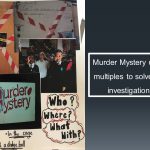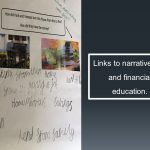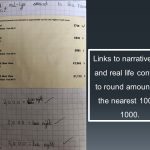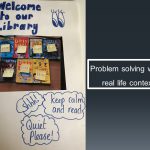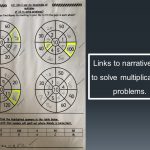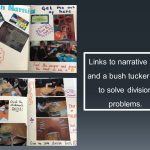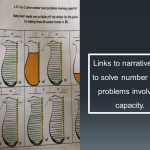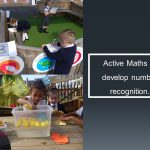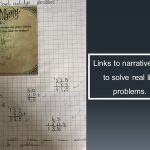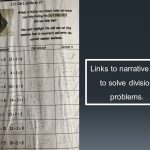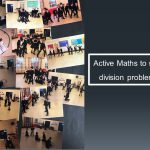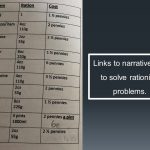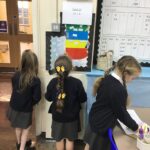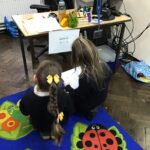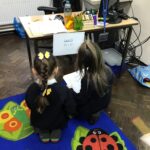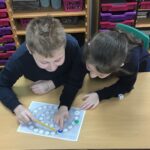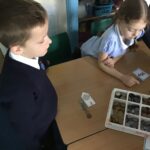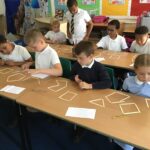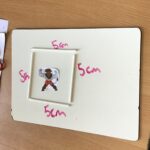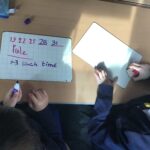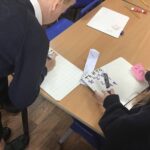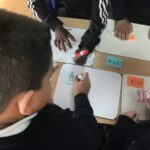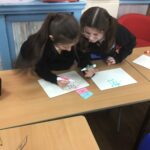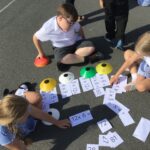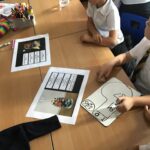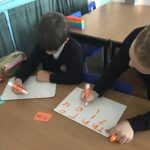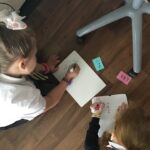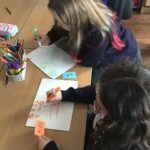Maths
Mathematics teaches us how to make sense of the world around us through developing a child’s ability to calculate, to reason, to be financially responsible and to solve problems. It enables children to understand and appreciate relationships and patterns in their everyday lives. Through their growing knowledge and understanding, children learn to appreciate the contribution made by many cultures to the development and application of mathematics.
Curriculum Intent:
At Leamington Community Primary School, we aim to develop numerate children who are confident with number and understand mathematical calculations, in order to develop key problem solving skills. We promote ‘Numeracy for Life’ and we believe that Mathematics provides children with the essential life skills of:
- Understanding number and calculation
- Problem solving
- Enquiry
- Reasoning skills
- Financial understanding
The intention at Leamington is to provide children with a wealth of opportunities through the ‘mastery approach’ and ‘Numeracy for life’. We aim to ensure every child is confident and enthusiastic when approaching Mathematical problems; to provide children with the skills to use and apply Mathematics in different contexts and to provide children with the vocabulary to talk about and explain Mathematical concepts.
Curriculum Implementation:
Staff adapt the scheme of work created by the Local Authority to deliver an exciting Maths curriculum which is embedded in real life situations and practical problem solving. There is a great emphasis on ensuring children enjoy Maths and children are given opportunities to engage in a variety of practical lessons (using guidance from TeachActive).
As part of our curriculum, our teachers plan lessons based on a narrative: staff create an environment that enriches knowledge and ignites enthusiasm by using drama-based learning and creating real-life links to the characters and events in the story, whilst covering mathematical objectives, therefore enhancing the children’s understanding and interest.
As well as this, we value the use of ICT to enhance learning and teaching of Mathematics; use a variety of learning styles and resources to cater for all children’s needs and put great importance on the promotion of positive attitudes towards Maths.
At Leamington Community Primary School, we provide children with a fun but focused Maths curriculum, ensuring the children develop the skills to become equipped for adult life. We adopt a fully inclusive, mind-friendly approach to teaching and learning in Mathematics where children are challenged sufficiently in a supportive environment with real-life links and access to financial vocabulary. Assessment for learning allows children and teachers to review the strategies and methods used in the lessons thus always moving learning on.
Curriculum Impact:
Children at Leamington are given every opportunity to achieve their full potential.
At Leamington Community Primary School we use both formative and summative assessment information to help staff to ensure children make exceptional progress; interventions are wisely used to support every individual. Staff use information daily to inform their planning and develop next steps in the children’s learning. This enables the staff to provide the best possible support to cater to special educational needs and opportunities to provide challenge for our more able children.
Liverpool Counts Quality Mark:
Leamington Community Primary School was awarded the Gold standard Liverpool Counts Quality Mark. This is presented to schools who have proven they aim to raise standards in numeracy and mathematics by changing attitudes and perceptions through the delivery of the Liverpool Counts quality mark and the promotion of the importance of numeracy as a life skill through business links and cultural opportunities.
As part of this, year six pupils have been appointed as Maths Ambassadors and help to promote Maths challenges across the school and on the playground. This group of Year 6 children are promoting Maths across the school and meet to discuss how we can improve Maths at Leamington.
Maths Whizz
We at Leamington encourage children to be independent learners and bought into Maths Whizz to help to close the gaps in children’s learning. This programme is used as an intervention within school when children can work on their own targets within Maths; it is used as a teaching tool with staff setting specific activities for children to complete working towards the learning objective for that session; it can also be accessed from home and children are encouraged to use it for at least 30 minutes a week.
A trophy is awarded each week to the class who make the most combined progress. It is proven that if children access Maths Whizz and make three progressions a week, they can make accelerated progress in Maths of approximately 18 months each year.
Take a look at these important documents
Early Years – How your child learns about numbers
Take a look at the following important documents:
Knowledge, Understanding and Skills
The National Curriculum for Mathematics – PRIMARY National Curriculum – Mathematics
Maths Immersion
As part of our continual curriculum development this year we will be developing our maths curriculum so it becomes immersed in the narrative immersion curriculum. Below are some examples of how we teach maths through the narrative immersion.
Maths at Leamington
Reception
Layla –
I like when we do Maths using cards and we get to play number games, finding numbers to put them in order.
Eden –
Maths is my favourite because I like numbers. I put the numbers in the right order. I can count forwards and backwards!
Year 1
Nikodem –
Maths Is my favourite subject. We learn all about number bonds. We can count on our fingers to help us. Sometimes my friends and my teachers help me to do Maths. I like to play games on the playground like ‘What’s the time Mr. Wolf?’ and its easy because I’ve learnt how to count.
Heidi –
You get to learn new things in Maths. We use numbers to solve additions. I put the numbers in my head and count on. If I don’t know an answer, I can use cubes and counting beads to help me.
Year 2
Iustin –
I like Maths because we learn times tables and divisions. Maths is really fun when we get to solve problems. I like everything about Maths!
Eleanor –
I like Maths because I am very good at Maths. I do Maths at home and in school. In school, Maths is really fun especially when I get to write in my book. I can do addition and subtractions all by myself!
Year 3
Jacob –
I like Maths because it’s really fun and you get to learn lots of new things. If you think you might give up, you can practise at home and with the teachers and then you always get the hang of it! I feel confident in Maths!
Rosie –
I like adding up and subtracting and we have learnt column addition. It’s fun to do divisions too. The best lessons are when we can move around the classroom or outside to solve our number problems.
Year 4
Logan –
I really like that Maths in our school is fun and interactive. You always feel like you have control and the teachers make it the best lessons ever!
Cyndi –
I love Maths in our school because it is really fun and we learn lots. The challenges are my favourite part!
Year 5
Tifinagh –
I really enjoy using times tables and dividing when we do Maths in school. I love solving code-breakers. If I am stuck a teacher will always help me. I feel confident in maths and enjoy solving problems.
Theodore –
I really enjoy maths and it is my favourite subject. Multiplication is the best part of Maths because you can learn multiples and practise them with games. I like that we get to work as team to complete our work. I like that we get to do active lessons when we are able to move around the classroom to solve different problems. I also really enjoy code-breakers.
Year 6
Millie –
I like that there are lots of different things we can do in Maths. I enjoy the active Maths lessons and the teachers help us to improve and help us when we are struggling. We learn lots of new methods. I use the inverse to check my answers. We play games on the playground using the Maths grid and times tables.
Thomas –
I love that we can continue our learning using the websites to practise and improve. The teachers always give us lots of challenges and it makes me think. I can always learn different methods and I fly through my Maths because I am really confident. I can work with a partner to check and compare my answers. We have to work through it and look for errors and talk about what we have done!
